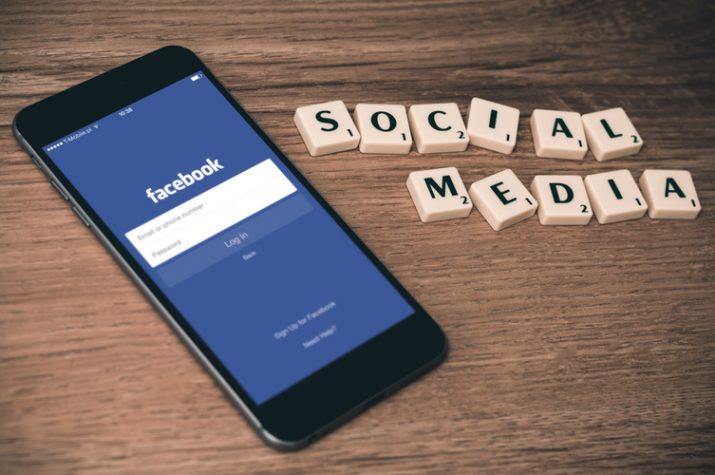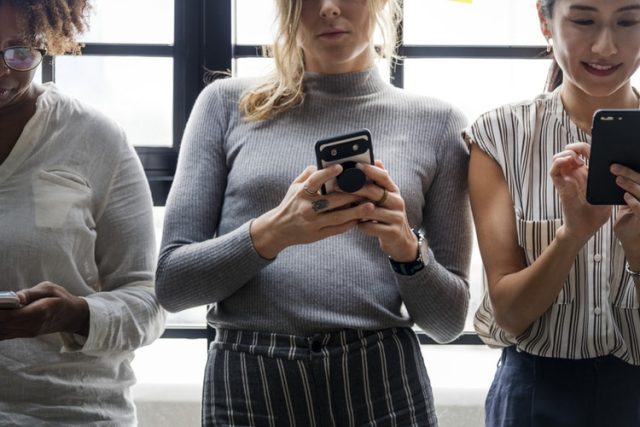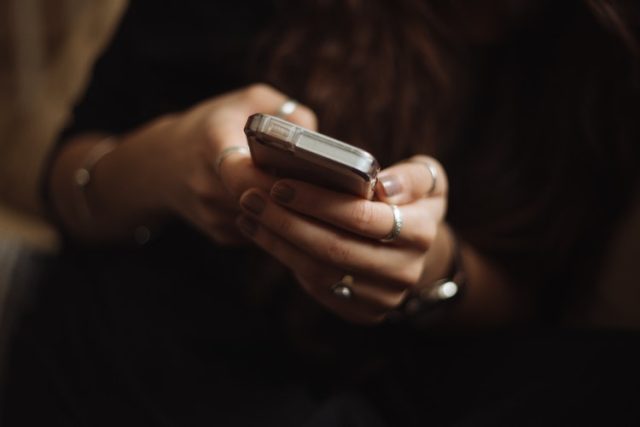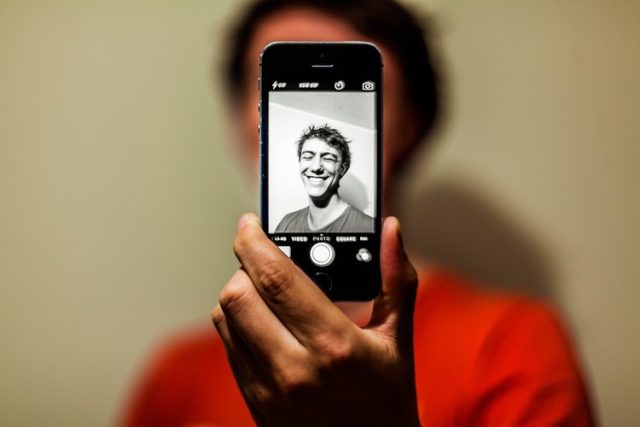Social Media: Open This Pandora’s Box At Your Risk
By Jignesh Padhiyar
January 23, 2019 • Fact checked by Dumb Little Man

It is now universally accepted that social media is an addiction more harmful than cigarettes, alcohol, and hard drug. Unfortunately, this addiction has gripped kids, young blood, and adults in its tentacles. The entire gamut of social networks works as sugar-coated poison.
Users feel elated in the beginning. Then, slowly and gradually, they'll succumb to the temptation until they find themselves consumed by this ogre.
This article aims to show you the bad side of social media. And for this purpose, we have divided the content into five major parts: Social, Political, Psychological, Health, and Financial. Each part will further be divided into sub-headings.
Social

As the name suggests, social media has a more significant impact on our social life. This includes our religion, social connections, communal harmony, and the safety of kids and women. The medium is deeply connected with our routine life as we share a lot of stuff on social networks.
And there are people reacting to your contents. This sparks further conversation and sometimes, you end up being cross swords with your connections.
Kids love to share contents on Instagram after Facebook
Parents with latchkey children have extra responsibility before handing over smartphones and tablets to the kids. If you think kids don’t use social media apps, you are living in la-la land.
Instagram is one of the favorite apps for young kids to share photos and videos. So, where is the trouble? When your kids don’t get likes and comments on their photos and videos, they begin to doubt on their self-worth.
This poor interaction on Instagram pushes your kids into the ‘low confidence zone.' For them, more likes and comments mean more success and a better personality.
Another significant peril on photo sharing apps is the default public photos. When your kids upload their pictures and videos, everybody can see that content. If the privacy settings have not been sent, hashtags and location make the contents more visible to people not directly connected to your kids.
Women Are Vulnerable
As mentioned above, the default settings of photos and videos on most social media apps are public. This means anybody can view and download your pics and ‘tarnish’ the image by using software/apps like Photoshop, Pixlr, and Sketch.
Next, the cyberbullies, with their minds filled with aggressive, toxic masculinity, upload the same photos on Facebook and Instagram to slander women. Anybody, including a spurned lover, can do this nasty job of morphing images.
Is It A Connect or Disconnect?
Gone are the days when people used to frequent their friends and relatives to celebrate festivals. With the surge of social media, everything happens in this virtual world. They exchange birthday and anniversary wishes on Facebook and send messages of condolence on social networks. They don’t even talk on phones.

The overdose of social media has created this disconnect. A face-to-face meeting has become a rare event in our social life. It has given birth to a sort of distrust among friends as there is a glaring absence of body language.
When you do not verbalize your thoughts, your body speaks. But when we use chat apps, like WhatsApp and Messenger, your body is hidden in the background. There are only words and emojis exchanged on screens.
The Problem of Over-Friendliness
Believe it or not, there are people who are too good to believe in. You must doubt their intentions of being too good to you. Such creatures are always there to reply to your ‘good morning’ and ‘goodnight’ messages. They can chat with you for 15 minutes even after you have sent a ‘goodnight’ sticker on WhatsApp.
Over-friendly people keep sending you motivational quotes, poems, and a lot of other contents.
Here is a caution: they can prove a wolf in sheep's clothing. They harbor some evil intentions in their dirty minds. When they win your confidence, they'll stab you in the back.
In the virtual world, even the most bashful users act confidently. They keep chatting with you for a long time and reveal their real persona. There is a strong possibility that such users can turn out to be the green-eyed monster with sinister intentions.
Politics
Post-2000, the world has seen close ties between social media and political communication. To win elections, political parties extensively use social media during their electoral campaigns. This political communication turned toxic when Facebook security breach exposed accounts of 50 million users.
The New York Times reported that “A British analytics firm got access to the private information of up to 87 million users to worries that disinformation on Facebook has affected elections and even led to deaths in several countries.”
Social media users trusted the channels and in turn, their privacy was compromised and attacked. What more damage can social media overdose do? The rise of hate speeches, racism, gender bias, communal disharmony, fake news, data hack and more.
Provocative Content Sharing
Asking and sharing provocative questions or content is one of the social media engagement strategies expert employ to engage users with brands, personalities or political parties. While using such tactics, experts care little about consumers’ reaction to those provocative questions and contents. Remember, they are interested in influencing your psyche or manipulating your minds into agreeing to their ideas or beliefs.
In countries, where people of different religious faiths exist side by side, provocative contents on social media can spark communal riots. Nefarious elements associated with political parties spread hate speeches which target a particular religion, caste or community.
Earlier, this activity was conducted offline by a small group of anti-social elements. Since social media removes the barriers of geography and time, anybody can join online conversations at any time.
As Badri Narayan from the GB Pant Social Science Institute in Allahabad said, “From word of mouth, communal polarization is now moving online. This is a dangerous trend since the internet is very potent.”
Fake News
Yellow journalism, propaganda, sensational news bites and the likes. Fake news exerts a massive effect on gullible social media users who trust those exaggerated and false statements of politicians. Primarily, fake news articles are spread to mislead voters and polarize public opinions on issues.
Fake news fans malicious political contents to benefit a particular political party. Normally, the campaigns begin a few weeks ahead of elections. Creators and distributors of fake news want to influence the mass and mold their minds into a belief that the party they are campaigning for is good for them.
The term ‘fake news’ has come into use for the last three years. In this time of post-truth politics, fake news has become one of the greatest threats to democracy and free debate.
WhatsApp is used as a powerful instrument to spread fake news like wildfire. In Brazil, this app was used to spread alarming amounts of misinformation, rumors and false news in the lead-up to the first round of the presidential election.
Health
Smart devices, with its extra smart screens, emit light continuously. With just inches away from such harmful rays, your skin and eyes are exposed to multiple threats. From insomnia to eyesore, back pain to lack of concentration, and suppression of melatonin release, our fascination for chat apps and social media channels lead us to mental and physical health hazards.

We tend to check messages and updates on our smartphones before we go to bed. This makes it harder to doze off as “Getting worked up with anxiety or envy from what we see on social media keeps the brain on high alert, preventing us from falling asleep,” explained Dr. Bono.
It has been found that people fight their sleep to enjoy their favorite contents on phablets and laptops. When they form such habits, they cannot focus on their daily sleep schedule. This can cause lack of concentration and short attention span. Eyesore is another bad effect of exposure to smart screens.
Financial
A casual photo or video sharing on social media can cause financial damage. On the face of it, this sounds impossible but after careful considerations, it has been noticed that fraudsters are closely following your social media profile pages to siphon money off your bank accounts.
Financial Condition Exposed
We happily upload our vacation photos on apps like Facebook, Yahoo chat room, Flickr, and Instagram. When we upload photos, we tag our friends and family members. But burglars are the unwanted or uninvited viewers of our holiday snaps, which reveal our location and financial status as well.
When we take pictures, we show our pricey fashion accessories, smartphones, jewelry, apparels, and luxury hotels where we stay. Criminals have sharp eyes and notice every detail that gives them a hint. In our absence, they may break into our house to rob our valuables and cash.
If not for robbers, your holiday photos on social media can expose your financial status to your friends and colleagues, leading them to assume you always have extra cash they can borrow.
Your travel documents
Showing your passport, visa or boarding pass can create your cosmopolitan personality. But these documents can be misused by fraudsters who can scan crucial information from the barcode.
According to Kyle Marchini, senior analyst for fraud management at Javelin Strategy & Research, “Your airline boarding pass may have a barcode that contains your frequent flyer account number.” He further adds, “Savvy financial scammers can use that information to commandeer your loyalty account or rewards profile and use your earnings to buy flights or other goods. Fraudsters like to take trips to Paris, too, and if they can do it on your dime, all the better.”
Aside from your travel documents, photos of your driver’s license, credit card, you drinking or doing drugs, information about your kids, and writing negative remarks on your current employer can put you in financial troubles.
Psychological
Privacy is a Myth
The entire cobweb of social media is intertwined with our psychology. We are encouraged to spend more time there so that the medium becomes an addiction for us. Next, they offer freebies to trick you into divulging personal information like full name, nationality, residential address, phone numbers, email IDs, age, sex, our likes and dislikes, and more.
It is a vicious nexus run by social media owners and app developers who create consumers’ psychography from whatever information shared online. The details help them craft personalized communication. They blast promotional emails, send messages of deals and offers, and show ads on our social media profile pages.
We lose our privacy and we cannot blame any external force as we are responsible for sharing our personal information. Thus, our privacy becomes a myth.
In addition to information shared by users, hackers prowl on social media to hack your data. By using shortened URLs, hackers invite their victims to visit malicious websites. They also use spyware to inject viruses in smartphones or computers.
Addiction: It’s Harder to Resist Than Cigarettes and Alcohol
As long as we use social media judiciously, it is our necessity. But when we cross the limit, it becomes an addiction. Browsing feeds continuously, sharing photos/videos, writing comments on others’ posts, and chatting with friends – everything is addictive if not done within limits.
It is surprising that Americans check their smartphones more than 150 times and spend more than five hours every day. Needless to say that smartphone users love to explore social media apps, with Facebook being the number one site accessed.
According to the Royal Society for Public Health, social media is more addictive than cigarettes and alcohol. The public health organization in the UK conducted a study and surveyed nearly 1500 young people aged between 14 and 24. The purpose of this survey was to find the impact of social media platforms on health and well-being issues like anxiety, depression, self-identity, and body image.
The study concluded that increased use of social media has led to higher rates of anxiety and depression in 91% of respondents, who were using the internet for social networking sites. This research also found that anxiety and depression have risen by 70% in the last 25 years.
Fake Profile Creation

Jealousy is inherent in the human mind. Social media fuels this omnipresent phenomenon. Common users follow celebrities online and they try to emulate their style and persona. When they fail to match the excellence of celebrities, they feel depressed or harbor low self-esteem.
Users have little knowledge about the behind-the-scenes reality of photos and videos created and uploaded on social media. The actors and actresses upload their selfies and photos after using a lot of filters and editing software. Therefore, the content looks nearly unrealistic, which users believe to be real even when it's not.
In our efforts to look like our icons, we spend too much time to take that perfect photo. And when we cannot capture that perfect snap, we feel depressed and less confident about our capabilities.
This comparison with others gives birth to stress. As a result, users create fake profiles to impress others. Since they don’t want to show their real image (they think they are inferior to others), they find an unrealistic photo or image and upload it as a substitute. Over time, they believe that the substitute is the real ‘Me.'
When they receive appreciation for that ‘Substitute’ image, they bask in that illusory glory. Then a time comes when that glory fades as people realize it was not really you but a substitute they have been admiring.
Harm to Women’s Body Image
Perfect photos of celebrities encourage you to look more attractive. Inspired by silver screen icons, young girls and women leave no stone unturned to stay in shape. Even after losing some flab, women find themselves incomplete when they see photos of celebrities on Facebook, Pinterest, and Instagram.
“These women tend to think thin people are more attractive and may be more self-conscious about how they themselves look,” said lead researcher Martin Graff, who is head of psychology research with the University of South Wales, in the United Kingdom.
Graff added that “Spending more time each day on those social networking sites that are often used to post images of oneself, and for comparison with others, is linked to having unhealthy relationships both with body image and potentially exercise as well.”
On the psychological effects of social media, Dr. Nancy Mramor, a psychologist and media expert from Pittsburgh, believes, “Social media has become a way to put these false images right in your field of vision whether you opt for them or not.”
She further adds, “You can turn off a movie, close a magazine or consciously step back from a billboard, but not so with social media. If young women want to know what someone is doing today or stay connected to their friends, they have to turn it on.”
Conclusion
We are digitally connected and now, it is impossible for us to disentangle from this web. This doesn't mean we should stop using social media on our mobile phones, tablets or computers, only that we try to do it with caution.
Sensible use of social networks will save you from the dangers associated with its habitual use. Set a time for each channel you use, don't share extremely personal stuff and keep bullies at arm's length. Enjoy the virtual life just as long as you don't let it take away the joy of your non-virtual one.
Jignesh Padhiyar
Jignesh Padhiyar is the co-founder of iGeeksBlog who has a keen eye for news, rumors and all the unusual stuff that happens around Apple products. During his tight schedule, Jignesh finds some moments of respite to share side-splitting contents on social media.


